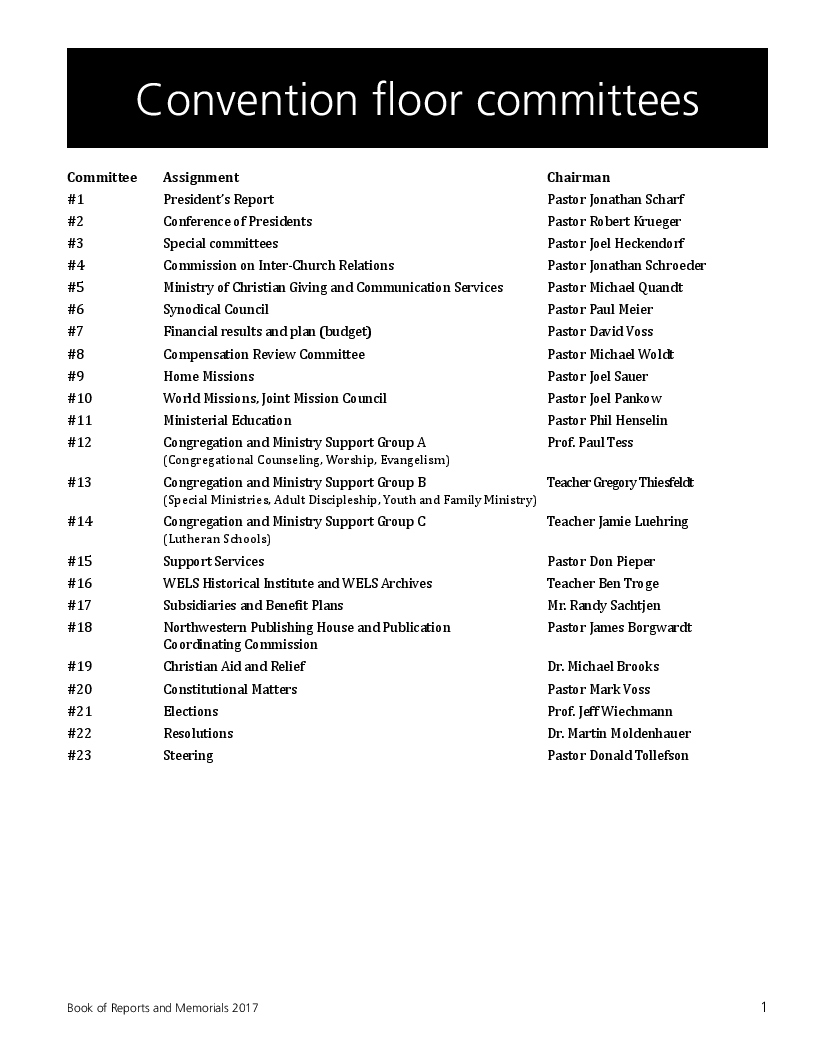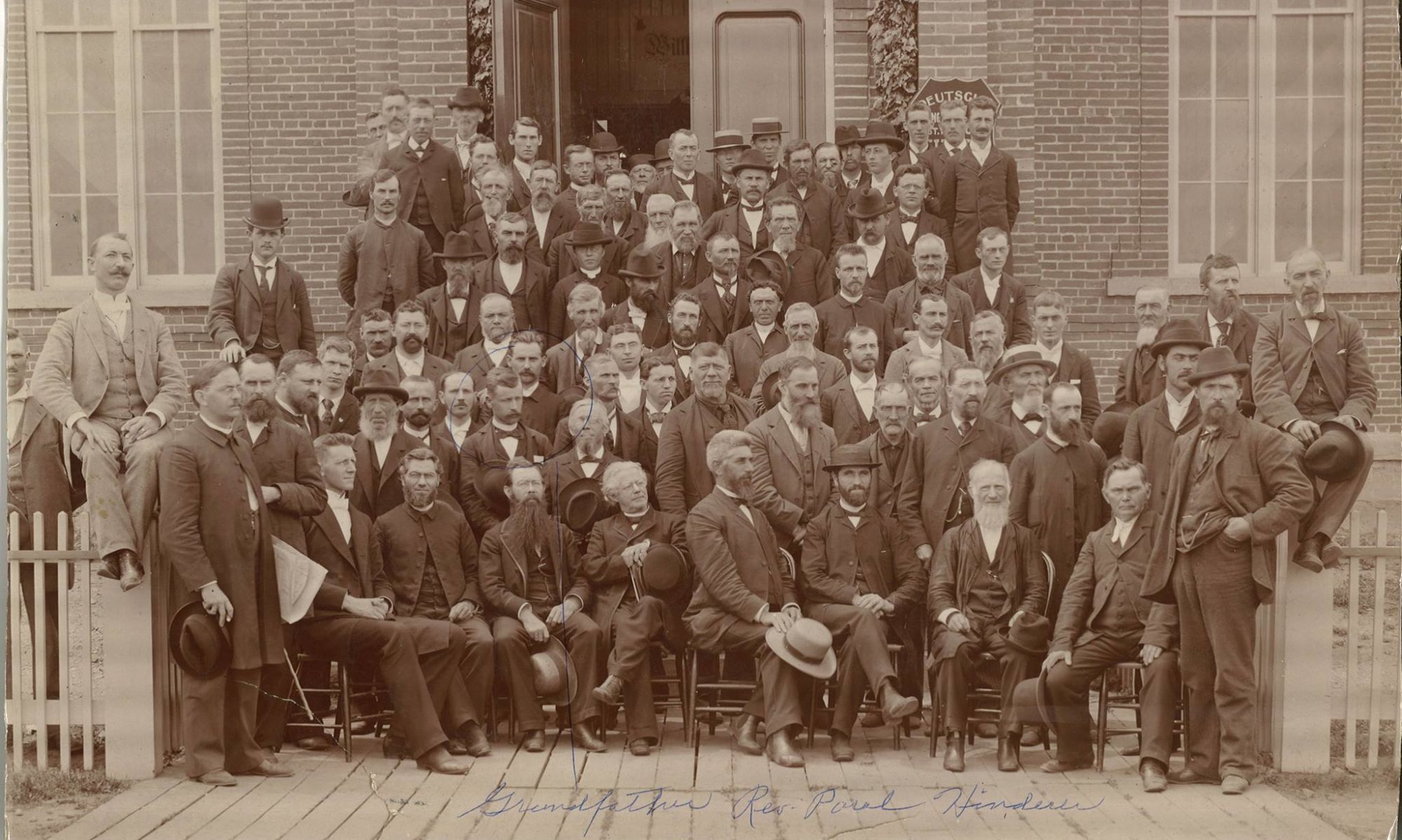“The Book of Reports and Memorials (BORAM) is intended to summarize, both for convention delegates and for the synod’s entire constituency, the business that will come before the convention. It contains reports from all synodical entities, describing the synod’s activities during the past year and providing information about current efforts and future plans. It also contains memorials, which are formal requests to the convention to address specific issues. All delegates are encouraged to read through this book in advance of the convention.”
The above statement taken from the BORAM tells me this publication isn’t just for the Delegates. It is for the entire Synod’s constituency. I have to agree.
If you really want to know what is going on in synod the BORAM is the book for you. I call it a book because it is currently 229 pages long. Synod continues to send updates as more reports and memorials come it.
The Reports
The Book of Reports and Memorials (BORAM) contains just what the name implies. The reports are from different areas of ministry within the the WELS. Examples include “Home Missions,” “World Mission,” and Northwestern Publishing House.” Less known areas include Ministry Support, Constitutional Matters, and the Commision on Inter-Church Relations.
One of the neat things about the BORAM is the insight it gives us concerning the many Ministries, internal and external, which our Synod is involved in. The reports typically contain three sections: Our Calling, Our Current Situation, and A Look Ahead. Some contain an Action Item.
“Our Calling” explains why a Ministry exists. “Our Current Situation” is a recap of the ministries’ activities over the past two years. It sometimes includes updates on activities assigned at a previous convention and identifies needs in that particular Area of Ministry. “A Look Ahead” tells us what the Ministry hopes to accomplish in the future. An “Action Item” is a specific item they wanted the convention to consider. Each report is reviewed by a Convention Floor Committee.
The Floor Committee
Understanding the Floor Committees has been my biggest challenge. I also believe it is the most important thing to understand because this is where the grunt work of the convention gets done.
President Schroeder explains the duties of the floor committees this way. “The floor committees serve only for the convention; they do not continue to function afterwards. Every delegate is assigned to a floor committee; each committee has a chairman and a secretary appointed by the synod presidium. None of the members of the floor committee (including the chairman and secretary) serve in the area of ministry assigned to the floor committee. This is done to insure an independent review. Those involved in the area of ministry are the advisors who are available to meet with the committee if desired.”
(This is me: I’m not positive what the Synod Presidium is, but do know a District Presidium is made up of the District Officers: the President, the First Vice-President, the Second Vice-President, and the District Secretary. I assume the Synod Presidium is the same using Synod Officers.)
“Each floor committee has the responsibility to review and respond to the information presented in its assigned area of the BORAM, or to additional information that may be presented on the floor of the convention by representatives of the area assigned to the floor committee.
The floor committee has great freedom in how it responds. Examples include:
1. Crafting resolutions that react (either positively or negatively) on the work that has been done or is being planned. The synod entity benefits from having its work either affirmed by the convention or by being encouraged to go in a different direction.
2. It can craft resolutions that affirm or reject any proposed action item.
3. Even if there is no action item proposed in the BORAM report, the floor committee can review the information provided to it and craft resolutions asking for specific action. In other words, the committee is not limited to dealing with action items proposed; they can, if warranted, create their own and submit them to the convention.
4. In addition to resolutions, the committee can also provide its reaction in paragraph form to any item that it feels is significant for the convention to be aware of. Such paragraphs do not call for action and are not really voted on; they simply serve to highlight significant information.
When the floor committee meets, it can invite representatives from the area it is dealing with to answer questions or to provide additional information. Such advisors can also request to meet with the committee if there is something that they feel the committee should address.
Once the committee has finished its work (with resolutions and reports), it submits its document to the Resolutions Committee, which reviews the report for any possible errors, and then forwards the report to the printer. Later in the convention, the committee reports are distributed to the delegates and the committee chairman is called on to present the report to the delegates.”
I owe President Schroeder a huge thanks for such a great explanation. Understanding the floor committee sheds a whole new light on understanding the BORAM, the convention, and the lay delegates role. A full list of the floor committees can be found in the drop down box.
[su_spoiler title=”All Floor Committees” icon=”arrow”]

[/su_spoiler]
